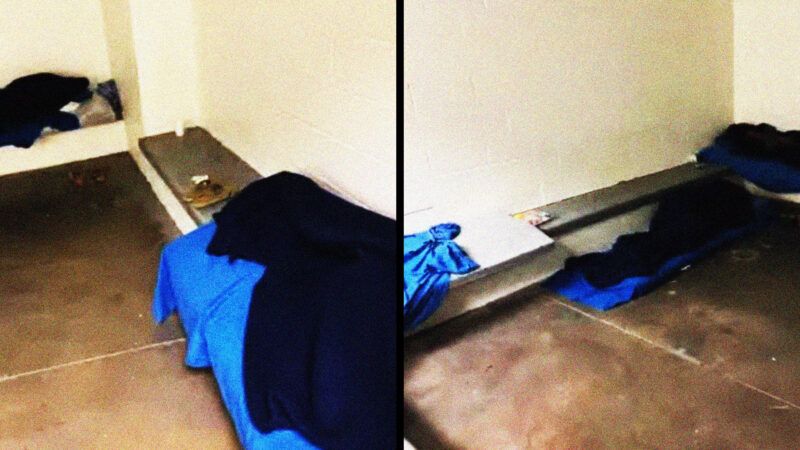Overcrowding Causes 'Unsafe and Unsanitary' Conditions for Youth In Philadelphia Jail
According to legal documents, children have been forced to sleep on the floor of offices and gymnasiums, with limited access to bathrooms and showers.

One Philadelphia, Pennsylvania juvenile jail is keeping youth in overcrowded, filthy conditions. According to The Philadelphia Inquirer, the situation has grown so dire that the city has now requested that a judge hold the state in contempt of court for failure to address the crisis.
Legal documents claim that the facility, which is built to house 184 juveniles, reached a peak of 242 this June. As a result, at least 30 children were forced to sleep in "mattresses on the floor in the admissions area," or "in physically crowded cells with no windows." Violence in the facility also reportedly increased.
The city claims that the overcrowding at the Juvenile Justice Services Center (JJSC) was caused by the state's inability to transfer youth who have been sentenced to prison into other facilities. The JJSC is a jail, meaning that children are only meant to be held there pre-trial and immediately post-sentencing.
According to legal filings, the city previously had contracts allowing it to send youth to serve their sentences at one of several private facilities around the county. However, according to the Inquirer, abuse at those facilities forced Philadelphia to remove youth housed there. Struggles to find other facilities that will take sentenced children have contributed to the current overcrowding crisis.
Pennsylvania's own policies around juvenile incarceration also contribute to overcrowding. The state "confines youth, both pre-trial and post-adjudication, at
significantly higher rates than many other jurisdictions around the country," according to an amicus brief filed by the Juvenile Law Center in Philadelphia's lawsuit against the state. "This overuse of confinement…flies in the face of research showing little benefit to public safety from confinement, and which in fact shows a greater risk of re-offending among incarcerated youth."
But despite a state judge's ruling in July mandating that the jail reduce its population, the number of youth incarcerated at the JJSC remains well above the jail's maximum, according to the Inquirer.
Making matters worse, kids kept in the JJSC who have been sentenced to serve prison time don't get credit for time spent incarcerated in the JJSC facility—meaning that some have had their incarceration extended by as much as six months as they await transfer.
"Our children are very frustrated because the time they are sitting in JJSC, or lying on a mattress on the floor with lights on 24 hours a day, none of that time counts," Keisha Hudson, chief of the Defender Association of Philadelphia told the Inquirer.
The situation is so dire that some children are allegedly asking to be sent to a private facility in Texas, with which the city now has a contract. Even though the Inquier reports that the facility has "a history of using disciplinary tactics including days-long isolation, mechanical restraints, and strip searches," Hudson said that some youth are "asking their lawyers, 'Please let me go because I'd be closer to coming home.'"
While an immediate solution seems unlikely, there is a way that Pennsylvania can reduce its population of incarcerated children: sending fewer kids to jail or prison and handing down shorter sentences.
"Pennsylvania particularly places youth at high rates for non-criminal acts such
as status offenses and technical violations, with the fourth highest rate of juvenile
confinement for these acts nationally." reads the Juvenile Law Center's amicus brief, adding that 73 percent of incarcerated youth in the state "are removed from their homes for their first adjudicated offense."


Show Comments (21)